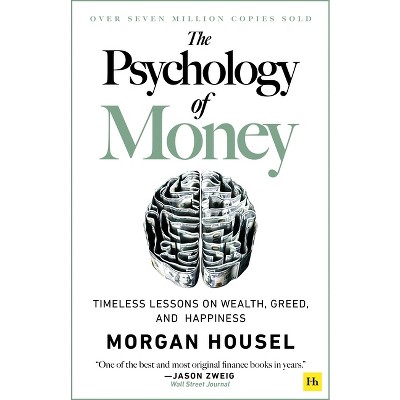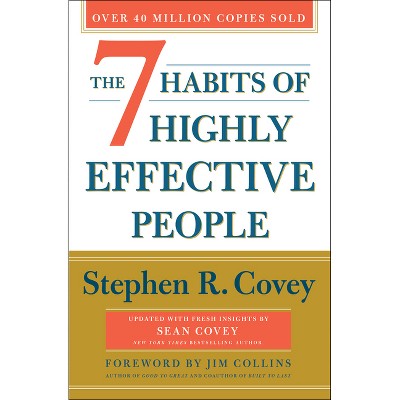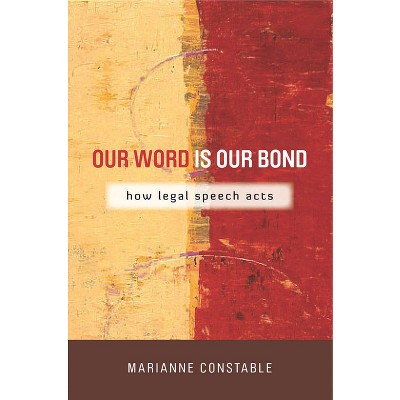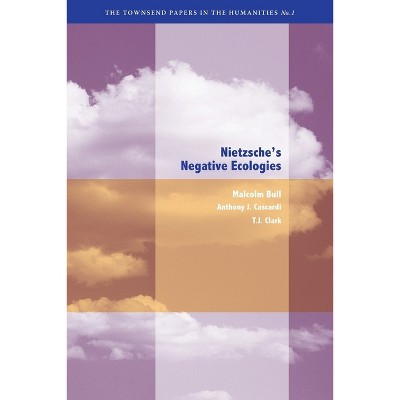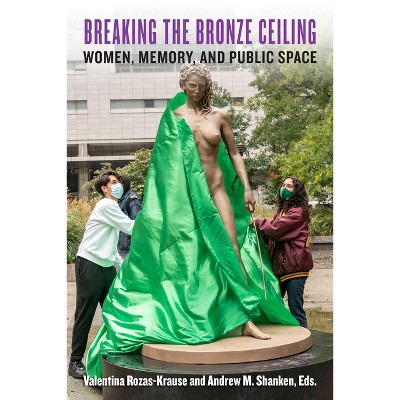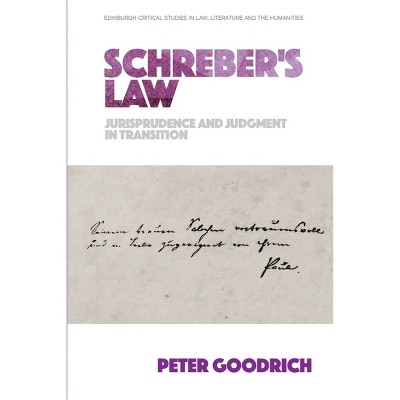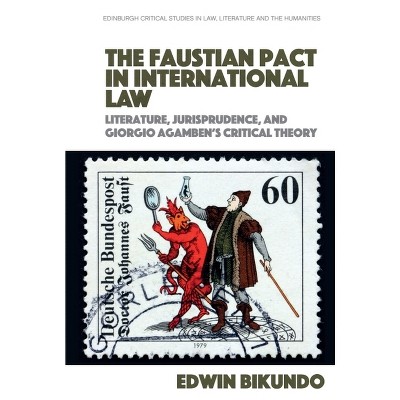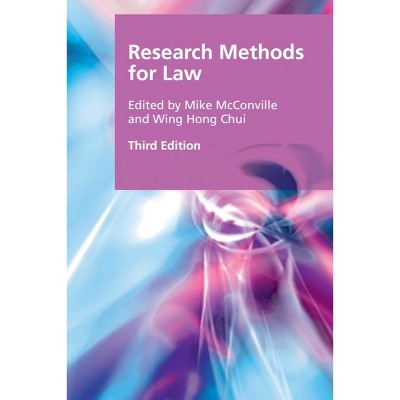Looking for Law in All the Wrong Places - (Berkeley Forum in the Humanities) by Marianne Constable & Leti Volpp & Bryan Wagner (Paperback)

About this item
Highlights
- For many inside and outside the legal academy, the right place to look for law is in constitutions, statutes, and judicial opinions.
- About the Author: Marianne Constable (Edited By) Marianne Constable is Professor of Rhetoric at the University of California, Berkeley.
- 272 Pages
- Freedom + Security / Law Enforcement, General
- Series Name: Berkeley Forum in the Humanities
Description
About the Book
For most, the right place to look for law is in constitutions, statutes, and judicial opinions. This interdisciplinary collection looks for law in the "wrong places"--sites and spaces in which no formal law appears--geographic regions beyond the law's reach, everyday practices ungoverned by law, works of art that have escaped law's constraints. Beyond showing law to be determined by or determinative of cultural phenomena, the contributors show how law is itself interwoven with language, text, image, and culture.Book Synopsis
For many inside and outside the legal academy, the right place to look for law is in constitutions, statutes, and judicial opinions. This book looks for law in the "wrong places"--sites and spaces in which no formal law appears. These may be geographic regions beyond the reach of law, everyday practices ungoverned or ungovernable by law, or works of art that have escaped law's constraints.
Looking for Law in All the Wrong Places brings together essays by leading scholars of anthropology, cultural studies, history, law, literature, political science, race and ethnic studies, religion, and rhetoric, to look at law from the standpoint of the humanities. Beyond showing law to be determined by or determinative of distinct cultural phenomena, the contributors show how law is itself interwoven with language, text, image, and culture. Many essays in this volume look for law precisely in the kinds of "wrong places" where there appears to be no law. They find in these places not only reflections and remains of law, but also rules and practices that seem indistinguishable from law and raise challenging questions about the locations of law and about law's meaning and function. Other essays do the opposite: rather than looking for law in places where law does not obviously appear, they look in statute books and courtrooms from perspectives that are usually presumed to have nothing to say about law. Looking at law sideways, or upside down, or inside out defamiliarizes law. These essays show what legal understanding can gain when law is denied its ostensibly proper domain. Contributors: Kathryn Abrams, Daniel Boyarin, Wendy Brown, Marianne Constable, Samera Esmeir, Daniel Fisher, Sara Ludin, Saba Mahmood, Rebecca McLennan, Ramona Naddaff, Beth Piatote, Sarah Song, Christopher Tomlins, Leti Volpp, Bryan WagnerFrom the Back Cover
"This extraordinary collection is a veritable lost and found of law's traces. Moving across disciplines, it offers rich and surprising refractions of law's ephemera: What do we learn about the opacity of governance when we look for justice beyond its expected 'place' in the confines of textual or rhetorical jurisprudence? What is revealed when the legal inhabits the sacred, informs the literary, performs geography, polices time, seeps through the agora, regenerates itself within bodies? This indispensable book excavates how seemingly robust juridical processes may teeter in concert with more fragile norms for mobility, status, and human affinity."--Patricia J. Williams, Columbia Law School
For many, the right place to look for law is in constitutions, statutes, and judicial opinions. This book looks for law in the "wrong places"--sites and spaces where no formal law appears. These may be geographic regions beyond the reach of law, everyday practices ungoverned or ungovernable by law, or works of art that have escaped law's constraints. In this book leading scholars of anthropology, cultural studies, history, law, literature, political science, race and ethnic studies, religion, and rhetoric look at law from the standpoint of the humanities. Beyond showing law to be determined by or determinative of distinct cultural phenomena, they show how law is itself interwoven with language, text, image, and culture. Many contributors examine places where there appears to be no law, finding not only reflections and remains of law, but also rules and practices that seem indistinguishable from law and raise challenging questions about the locations of law and about law's meaning and function. Other essays look in the more common places--statute books and courtrooms--but from perspectives that are usually presumed to have nothing to say about law. Looking at law sideways, upside down, or inside out defamiliarizes law. These essays show what legal understanding can gain when law is denied its ostensibly proper domain. Marianne Constable is Professor of Rhetoric at the University of California, Berkeley. Leti Volpp is Robert D. and Leslie Kay Raven Professor of Law at the University of California, Berkeley. Bryan Wagner is Associate Professor of English at the University of California, Berkeley.Review Quotes
This extraordinary collection is a veritable lost and found of law's traces. Moving across disciplines, it offers rich and surprising refractions of law's ephemera: What do we learn about the opacity of governance when we look for justice beyond its expected 'place' in the confines of textual or rhetorical jurisprudence? What is revealed when the legal inhabits the sacred, informs the literary, performs geography, polices time, seeps through the agora, regenerates itself within bodies? This indispensable book excavates how seemingly robust juridical processes may teeter in concert with more fragile norms for mobility, status, and human affinity.---Patricia J. Williams, Columbia Law School
All of this volume's editors and contributors are associated with the University of California, Berkeley, but they are part of diverse faculties (e.g., law, rhetoric, anthropology). In this interesting collection of essays they examine the interstices of everyday life, places where law leaves only a vague imprint.-- "Choice"
About the Author
Marianne Constable (Edited By)Marianne Constable is Professor of Rhetoric at the University of California, Berkeley. She is the author Our Word is Our Bond: How Legal Speech Acts (Stanford), Just Silences: The Limits and Possibilities of Modern Law (Princeton), and The Law of the Other: The Mixed Jury and Changing Conceptions of Citizenship, Law, and Knowledge (Chicago). Leti Volpp (Edited By)
Leti Volpp is Robert D. and Leslie Kay Raven Professor of Law at the University of California, Berkeley. She is also the director of the UC Berkeley Center for Race and Gender. She is the co-editor of Legal Borderlands: Law and American Borders (Johns Hopkins) and writes about immigration law, citizenship theory, feminist theory and critical race studies. Bryan Wagner (Edited By)
Bryan Wagner is Associate Professor of English at the University of California, Berkeley. His books include Disturbing the Peace: Black Culture and the Police Power after Slavery (Harvard), The Tar Baby: A Global History (Princeton), and The Life and Legend of Bras-Coupé The Fugitive Slave Who Fought the Law, Ruled the Swamp, Danced the Bamboula, Invented Jazz, and Died for Love (LSU).
Shipping details
Return details
Trending Business & Law Books

